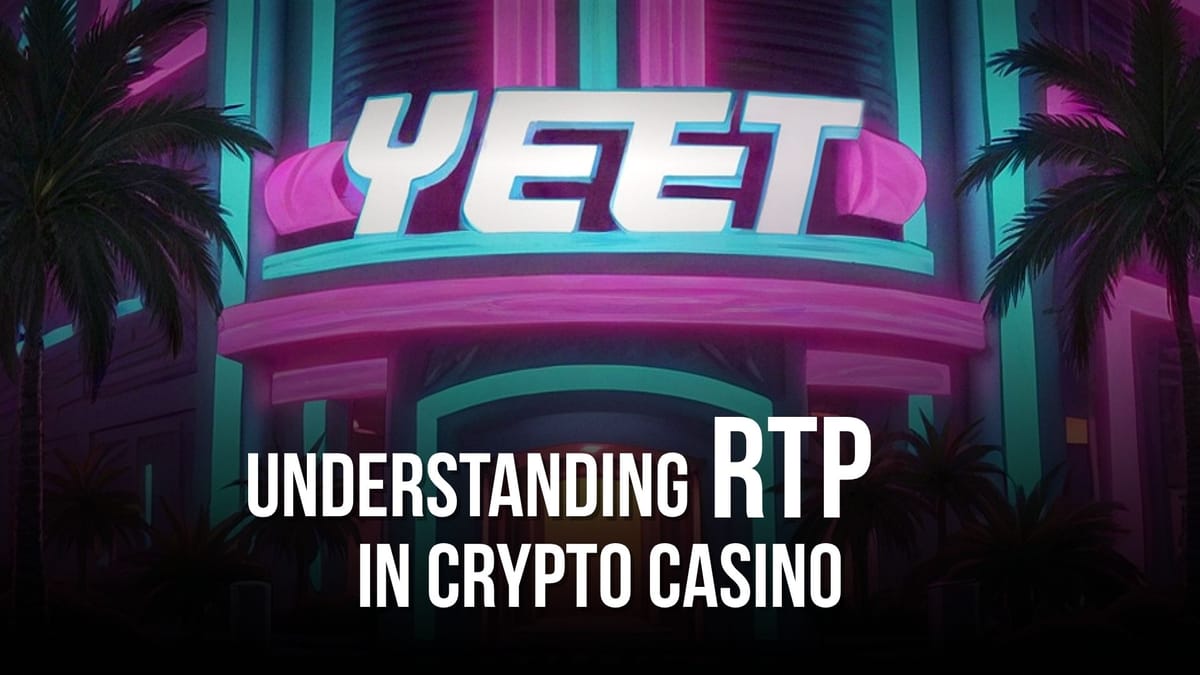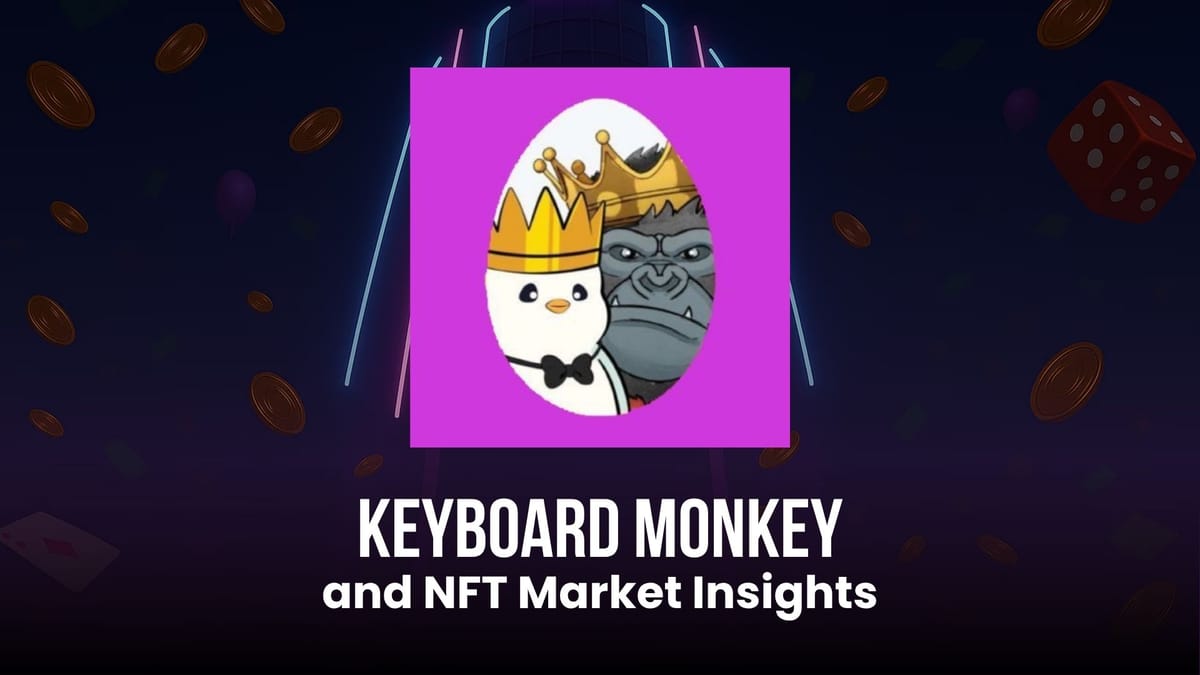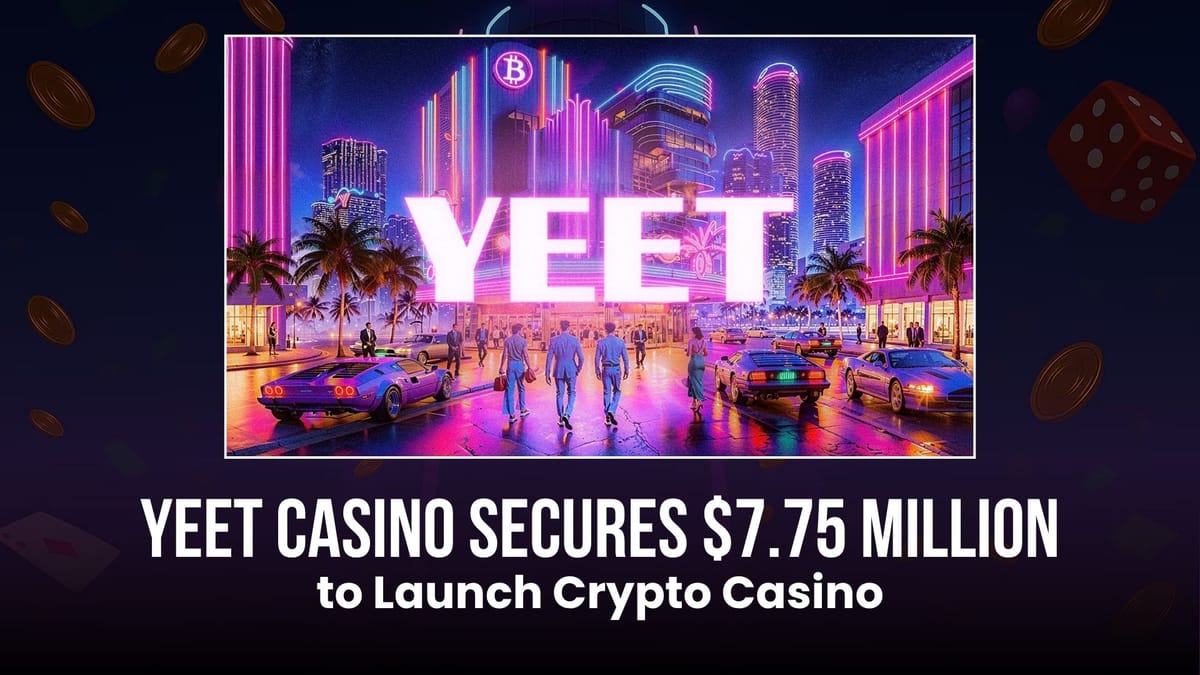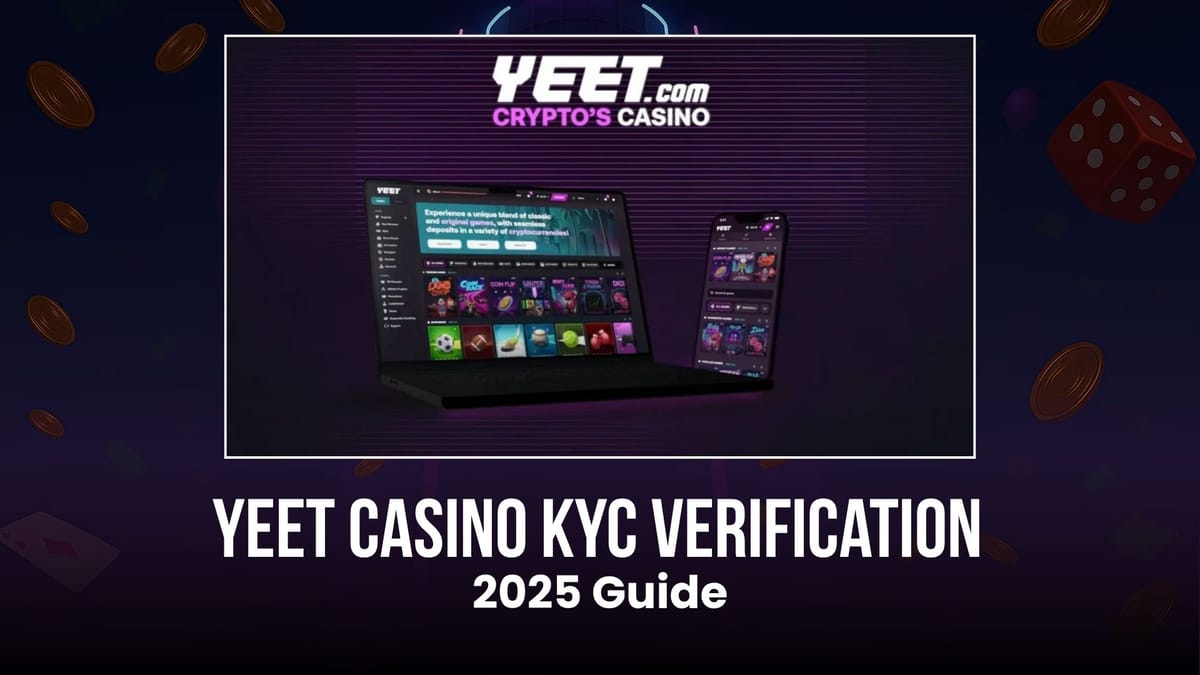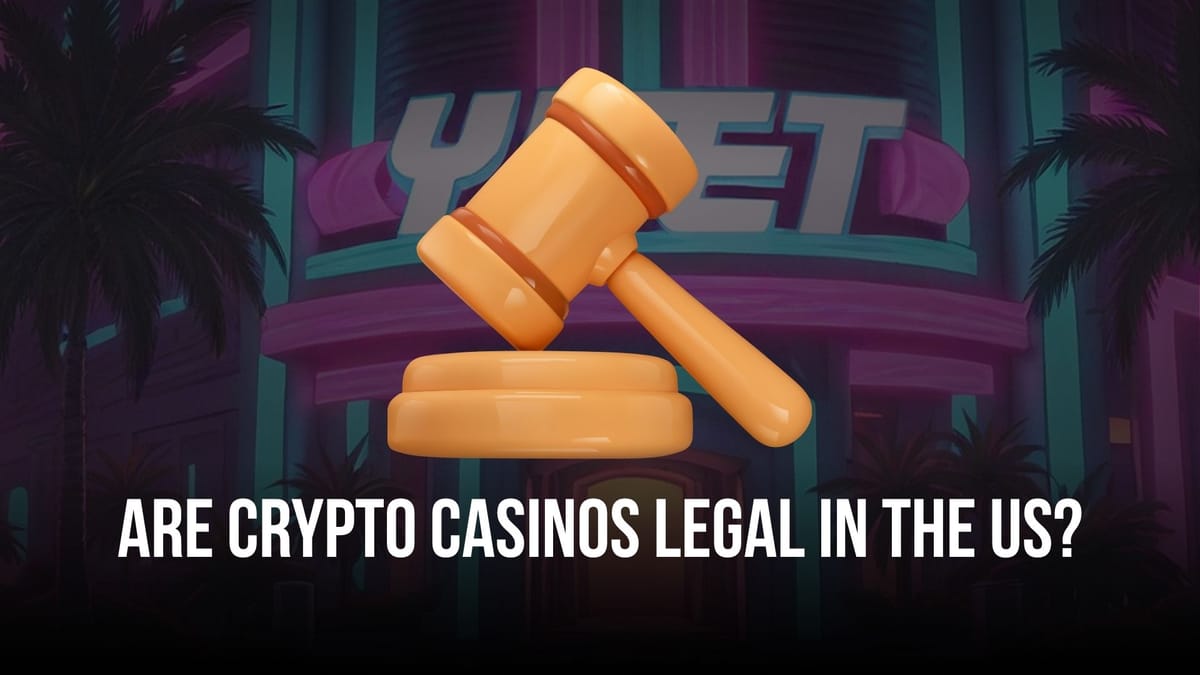A Look Into Decentralized Crypto Casino
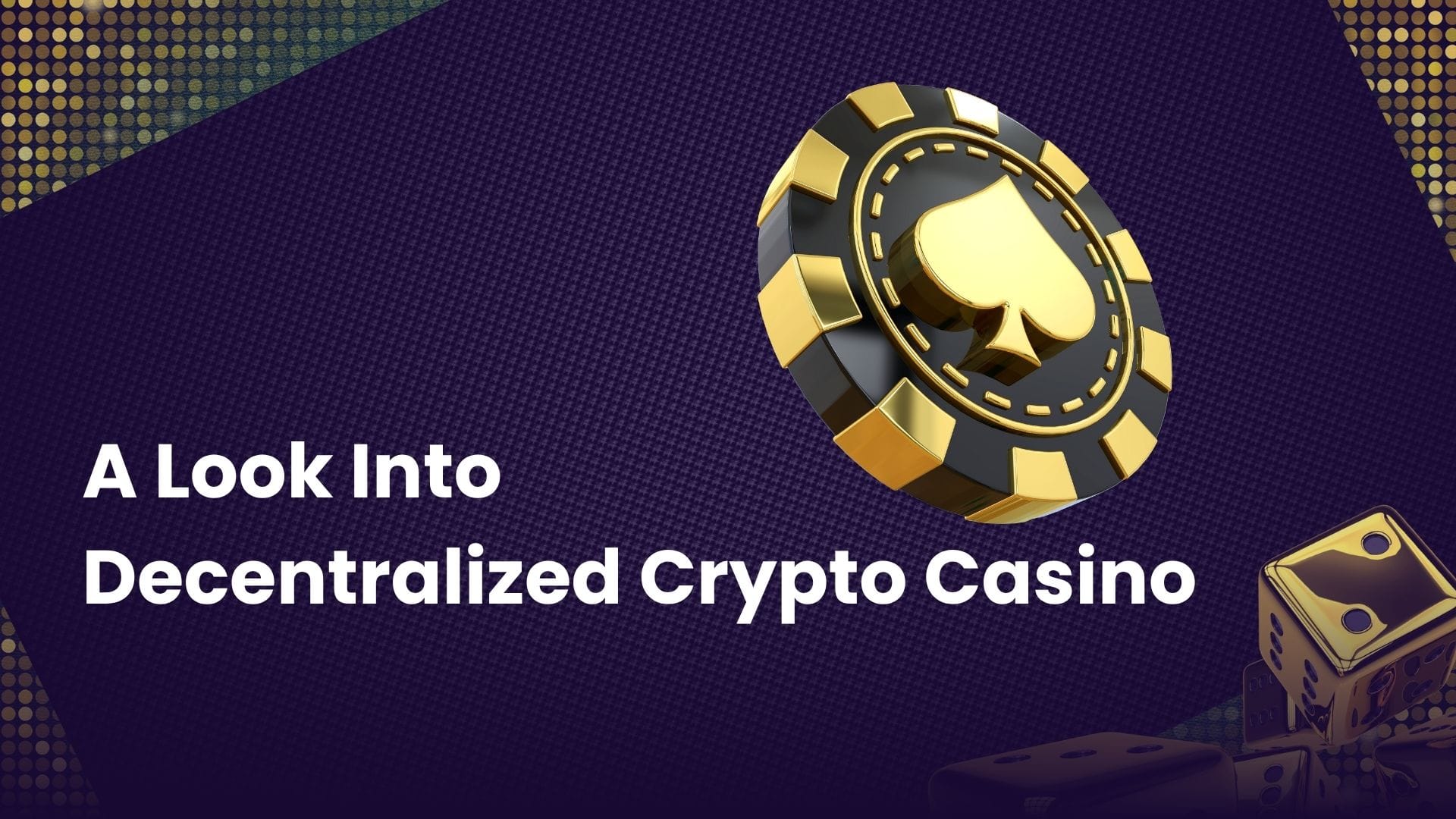
Understanding the Decentralized Crypto Casino Landscape
So, you've probably heard about crypto and maybe even online casinos. But what about putting them together?
We're talking about decentralized crypto casinos, which are changing how people gamble online.
It's not just about using Bitcoin anymore; there are all sorts of new ways to play, from how your money is handled to how games are made.
This article will look into what makes these casinos tick, how they're growing, and what the future might hold for them.
It's a pretty interesting shift in the crypto gambling world.
Key Takeaways
- Decentralized crypto casinos let you keep control of your funds, meaning your wallet, your rules.
- These casinos use more than just Bitcoin, like altcoins and stablecoins, for faster and more stable transactions.
- Smart contracts and blockchain tech make games fair and transparent, and NFTs are changing how we own game items.
- Mobile gaming is getting a big upgrade with 5G and AI, making decentralized crypto casinos easier to use on the go.
- The growth of Web3 gaming and play-to-earn models is bringing new players into the decentralized casino world, even with some legal hurdles.

Your Wallet, Your Rules: Non-Custodial Crypto Casinos
Okay, so the big deal with decentralized crypto casinos is that you are in control. It's your money, and you decide what happens with it.
Non-custodial means the casino doesn't hold your funds; you do, right in your own crypto wallet.
This cuts out the middleman, which is pretty cool.
- You deposit directly from your wallet.
- You play directly from your wallet.
- You withdraw directly to your wallet.
It's a different way of thinking about online gambling. You're not trusting a casino to hold your money; you're using smart contracts to manage the whole process. It's more transparent and, in theory, more secure.
Beyond Bitcoin: Exploring Altcoins in Decentralized Crypto Casinos
Bitcoin was the first, but now there's a whole bunch of other cryptocurrencies, or altcoins, getting in on the action.
Some offer faster transaction times, which is great when you just want to play instantly.
Others focus on privacy, which some people care about a lot. Here's a quick rundown:
- Litecoin (LTC): Faster transactions than Bitcoin.
- Ethereum (ETH): Enables complex smart contracts.
- Monero (XMR): Focuses on privacy and anonymity.
Stablecoins and Instant Payouts in Decentralized Crypto Casinos
Stablecoins are designed to mimic the value of fiat currencies like the US dollar. This means less volatility, which can be a good thing when you're gambling.
Imagine winning big, then the value of your crypto drops by half before you can cash out!
Stablecoins avoid that problem.
Plus, they often enable really fast payouts. No more waiting days for your winnings; you can get them almost instantly.
Stablecoin | Pegged To | Benefit |
|---|---|---|
USDT | USD | Stability, wide acceptance |
USDC | USD | Transparency, regulatory compliance |
DAI | USD | Decentralized, community-run |
The Technological Backbone of Decentralized Crypto Casinos
Smart Contracts and On-Chain Randomness
Smart contracts are the heart of decentralized crypto casinos. They automate every process, from deposits and withdrawals to game logic and payouts.
This automation removes the need for a central authority, making the casino more transparent and trustworthy. On-chain randomness is also important.
Traditional online casinos use random number generators (RNGs), but these can be manipulated.
Decentralized casinos use cryptographic methods to generate random numbers on the blockchain, which are verifiable by anyone. This makes the games provably fair.
Blockchain Technology and NFTs in Gaming
Blockchain tech is not just for cryptocurrencies; it's also changing gaming. NFTs, or non-fungible tokens, are unique digital assets that can represent in-game items, avatars, or even virtual land.
Players can truly own these items and trade them on open marketplaces. This creates new economic opportunities within games.
Blockchain also allows for verifiable scarcity, meaning that game developers can create limited-edition items that are truly rare. This can increase the value of these items and make the game more engaging.
The use of blockchain technology ensures transparency and security.
Interoperable Wallets for Seamless Gaming
Interoperable wallets are key to a smooth experience in decentralized crypto casinos. These wallets allow players to use the same wallet across multiple platforms and games. This eliminates the need to create separate accounts and transfer funds between them. Interoperability also makes it easier for players to manage their digital assets and track their winnings.
Imagine a future where you can use the same avatar and in-game items across multiple games, earning rewards and trading them freely. Interoperable wallets make this possible, creating a more connected and engaging gaming experience.
Here are some benefits of interoperable wallets:
- Simplified account management
- Seamless asset transfer
- Enhanced user experience
Mobile Innovation in Decentralized Crypto Casinos
Mobile is king, and that's especially true for decentralized crypto casinos. People want to gamble on the go, and the tech is finally catching up to make it a great experience. It's not just about shrinking the desktop version onto a phone screen anymore; it's about creating something specifically for mobile.
Next-Gen Mobile Casino Trends for 2025
Mobile casinos are evolving fast. We're seeing smarter pop-ups that time offers around your phone's battery life, which is pretty clever. Picture-in-picture windows are becoming more common, letting you watch a live dealer while browsing other games. The focus is on making the mobile experience as engaging and intuitive as possible.
- Smarter pop-up notifications
- Picture-in-picture for live games
- Personalized game recommendations
5G-Powered PWAs and Swipe-First Lobbies
5G is a game-changer, allowing for faster loading times and smoother gameplay. Progressive Web Apps (PWAs) are also becoming popular because they offer an app-like experience without needing to be downloaded from an app store. Swipe-first lobbies are another trend, making it easier to navigate games with just a thumb flick. This is especially important for crypto gambling industry, which is projected to grow significantly.
On-Device AI and Curated Game Experiences
AI is starting to play a bigger role in mobile casinos. On-device AI can curate game rows based on your playing habits, making it easier to find games you'll enjoy. This personalized experience is a big draw for players. It's all about making the casino feel like it's tailored just for you.
Mobile casinos are no longer just a scaled-down version of their desktop counterparts. They are becoming sophisticated platforms that leverage the latest mobile technologies to provide a unique and engaging gaming experience.
The Evolution of Web3 Gaming and Decentralized Crypto Casinos
Web3 Gaming's Impact on User Onboarding
Web3 gaming is changing how people get into the decentralized world. It's not just about playing games; it's about introducing users to blockchain technology in a fun, engaging way. Think of it as a gateway. Instead of reading complicated whitepapers, people are learning about wallets, transactions, and digital ownership through gameplay. This makes the whole process less intimidating and more accessible. Web3 games often feature simple mechanics that mask the underlying complexity of blockchain, making it easier for newcomers to understand and adopt the technology.
Play-to-Earn Platforms and the Decentralized Ecosystem
Play-to-earn (P2E) platforms have become a big part of the decentralized ecosystem. They offer players the chance to earn real money or crypto while playing games. This model has attracted a lot of attention, but it's also faced some challenges. Some P2E games have struggled with sustainability, as the in-game economies can be difficult to balance. However, the core idea of rewarding players for their time and effort is still very appealing. It's about giving players a stake in the game's success and allowing them to benefit from their contributions. Decentralized gambling is growing quickly, fueled by blockchain technology and user demand for transparency, speed, and anonymity.
Legal Challenges and the Future of Blockchain Games
Blockchain games are facing some serious legal hurdles. Regulations around crypto and NFTs are still evolving, and different countries have different rules. This creates uncertainty for developers and players alike. For example, some games have run into trouble with gambling laws, while others have faced scrutiny over their tokenomics. Navigating this legal landscape is a major challenge for the industry. It's important for developers to stay informed and work with legal experts to ensure they're complying with all applicable regulations. The future of blockchain games depends on finding a way to balance innovation with responsible regulation.
The legal landscape surrounding blockchain games is complex and constantly changing. Developers need to be aware of the risks and take steps to protect themselves and their players.
Here's a quick look at some of the legal challenges:
- Securities laws: Are in-game tokens considered securities?
- Gambling regulations: Do P2E games constitute gambling?
- Data privacy: How is player data being collected and used?
- Intellectual property: Who owns the rights to in-game assets?
Security and Transparency in Decentralized Crypto Casinos
Eliminating Middlemen and Counterparty Risk
Decentralized crypto casinos cut out the traditional intermediaries, which is a big deal for security. This means players have more direct control over their funds and gaming experience. No more waiting on slow withdrawals or worrying about a casino's solvency. It's all about self-custody and reducing the risk of something going wrong with a third party. swift fund access is a major benefit.
Ensuring Compliance and Reducing Chargebacks
Even though decentralized casinos operate differently, they still need to think about compliance. It's a tricky balance. They need to follow regulations to stay legit, but also maintain the freedom and privacy that crypto users expect. One way they do this is by using blockchain tech to track transactions and prevent fraud. This can also help reduce chargebacks, which are a pain for both casinos and players.
Here's a quick look at how blockchain helps:
- Immutable records: Every transaction is recorded on the blockchain and can't be changed.
- Transparency: Transactions are publicly viewable (though user identities can be protected).
- Smart contracts: Automate processes and ensure fair play.
Self-Custodied Play and User Control
Self-custody is a core principle of decentralized crypto casinos. It means you, the player, are in charge of your own funds. You're not trusting a casino to hold your money for you. You control your private keys and your wallet. This gives you a lot more power and reduces the risk of losing your funds if the casino gets hacked or goes out of business.
With self-custodied play, users have complete control over their digital assets. This level of control is a significant departure from traditional online casinos, where funds are held by the casino itself. This shift empowers players and reduces the potential for loss due to centralized failures.
Economic Impact and Market Growth of Decentralized Crypto Casinos

The rise of decentralized crypto casinos isn't just a tech trend; it's reshaping the financial landscape of online gaming. We're seeing new economic models emerge, driven by blockchain technology and cryptocurrency adoption. It's interesting to see how these platforms are changing the way people think about gambling and digital assets.
New Monetary Possibilities Within Games
Decentralized crypto casinos are opening up new ways for players to earn and spend within games. This includes things like earning crypto through gameplay, participating in decentralized finance (DeFi) activities, and even staking tokens to earn rewards. It's not just about winning or losing anymore; it's about participating in a digital economy. For example, some platforms offer in-game quests that reward players with tokens, which can then be used to play more games or traded on exchanges. This creates a more engaging and rewarding experience for players.
Player Ownership of Digital Goods
One of the most exciting aspects of decentralized crypto casinos is the concept of player ownership. Through blockchain technology and NFTs, players can truly own their in-game assets, such as avatars, skins, and virtual items. This means that players can buy, sell, and trade these assets on open marketplaces, creating a new source of income and value. It's a big shift from traditional online casinos, where players have no real ownership of the items they acquire. This ownership model is attracting a new generation of gamers who value digital scarcity and control.
Reshaping the House Edge with Crypto Choice
Traditional online casinos have a built-in house edge, which is the statistical advantage that the casino has over the players. Decentralized crypto casinos are changing this dynamic by offering greater transparency and control over the house edge. Some platforms even allow players to participate in the governance of the casino, giving them a say in how the house edge is set. Additionally, the use of cryptocurrencies can reduce transaction fees and processing times, which can further improve the player's overall experience. The ability to use different alt-coins is also reshaping the house edge.
The shift towards decentralized crypto casinos is not just about technology; it's about empowering players and creating a more fair and transparent gaming experience. As the industry continues to grow, we can expect to see even more innovative economic models emerge, further blurring the lines between gaming and finance.
Future Trends Shaping the Decentralized Crypto Casino Experience
The decentralized crypto casino world is moving fast. It's not just about replicating traditional casinos with crypto; it's about creating entirely new experiences. We're seeing trends emerge that could redefine how we think about online gambling.
RPG-Style Quests and Avatar Skins
Imagine your casino experience as a role-playing game. That's where things are headed. Instead of just spinning reels, you'll complete quests, earn experience points, and unlock avatar skins. This adds a layer of engagement that goes beyond simple gambling. Think daily challenges, leaderboards, and collaborative events where players work together to achieve goals. This is all about making the experience more immersive and rewarding.
Vertical Live-Dealer Streams
Forget the traditional horizontal live-dealer setup. Mobile is king, and vertical video is the format of the future. Vertical live-dealer streams are optimized for smartphones, offering a more natural and engaging experience. It's like watching TikTok, but you're betting on blackjack. This format allows for better use of screen real estate, making it easier to place bets and interact with the dealer on the go. It's all about convenience and accessibility.
Responsible Gaming Meters and User Experience
Responsible gaming is becoming a central focus, driven by both regulatory pressure and a genuine desire to protect players. We're seeing the rise of responsible gaming meters that track spending, time played, and other key metrics. These meters provide real-time feedback, helping players stay in control. The EU is pushing for these responsible gaming meters to be front and center, making them impossible to ignore. This is a positive step towards creating a safer and more sustainable gaming environment.
The future of decentralized crypto casinos isn't just about technology; it's about creating a more engaging, responsible, and ultimately, more enjoyable experience for players. By embracing new formats, gamified elements, and a strong focus on user well-being, these platforms are poised to revolutionize the online gambling industry.
Conclusion
So, what's the big picture here? Crypto casinos are changing things up, big time. We're talking about a world where you have more say, more control over your money, and things are just more out in the open. It's not perfect, of course. There are still some bumps in the road, like figuring out all the rules and making sure everyone feels safe. But honestly, the way things are going, it looks like these decentralized crypto casinos are here to stay. They're giving us a peek at what gaming could be like in the future, and it's pretty cool to think about.
Frequently Asked Questions
What's a decentralized crypto casino?
Decentralized crypto casinos let you play games using digital money like Bitcoin, but the big difference is you keep full control of your funds. There's no middleman holding your money, so it's more direct and often more transparent.
Can I use different cryptocurrencies besides Bitcoin in these casinos?
Yes, many decentralized crypto casinos use different kinds of digital money, not just Bitcoin. You might see options like Ethereum (ETH), Ripple (XRP), or even stablecoins like USDT, which are designed to keep a steady value.
How do these casinos make sure games are fair and honest?
These casinos use something called 'smart contracts' and 'on-chain randomness.' Smart contracts are like unbreakable digital rules that make sure games are fair and payouts happen automatically. On-chain randomness means the game results are truly random and can be checked by anyone, making things very honest.
Can I play at decentralized crypto casinos on my phone?
Absolutely! Many decentralized crypto casinos are designed to work great on phones. You'll often find special web apps (PWAs) that act like regular apps but don't need to be downloaded from an app store. This makes playing on the go super easy.
What's the connection between Web3 gaming and decentralized crypto casinos?
Web3 gaming is a new way to play games where players have more ownership and control, often through digital items called NFTs. This fits well with decentralized casinos because both ideas are about giving power back to the user and using blockchain technology for transparency and ownership.
What are the main advantages of playing at a decentralized crypto casino?
One of the biggest benefits is that you control your own money directly, without a casino holding it. This means less risk of your funds being frozen or lost. Plus, transactions are often faster, and the games can be more transparent because everything is recorded on the blockchain.
More Crypto Casino Guides:
